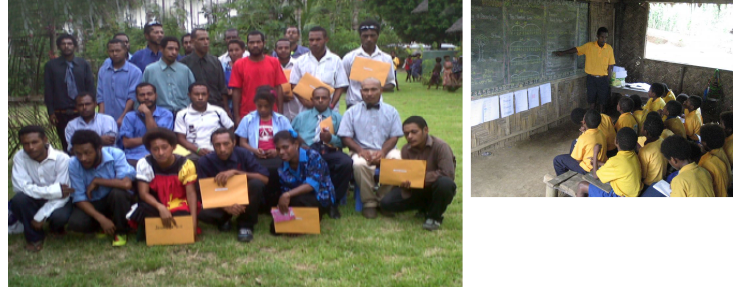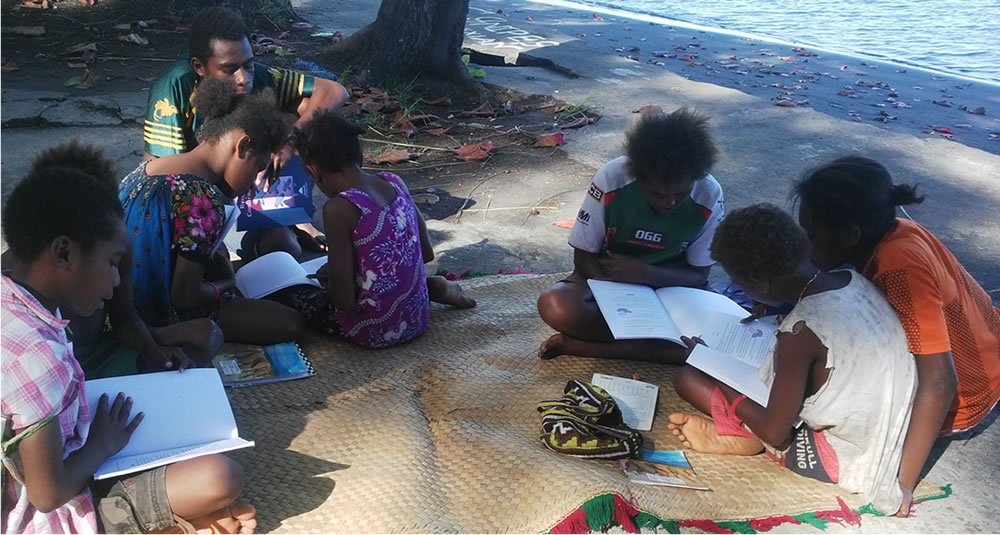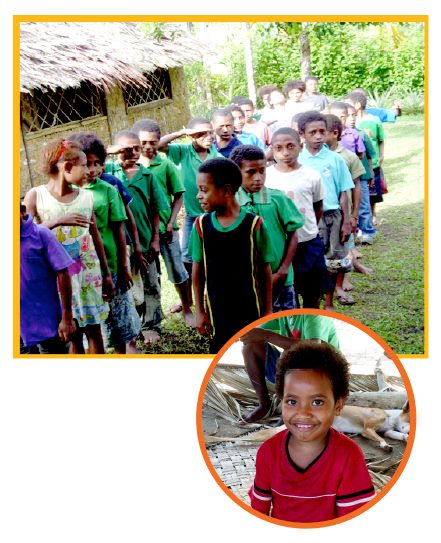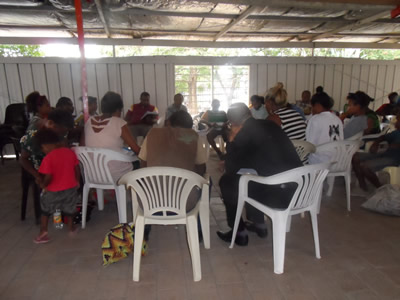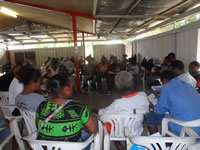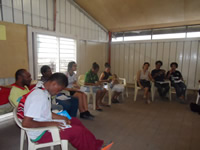Education is vital to the development of individuals and their
continued wellbeing and is a fundamental right of all children.
It allows individuals to realize their full potential and to live rich and meaningful
lives. The future of humanity is dependent on the type of education we impart to
our children. There are two types of education - material and spiritual. While the
pursuit of academic knowledge is important, emphasis is also placed on the development
of virtues and character, with the belief that a child that has the opportunity to acquire both will be “light upon light”.
“Man is even as a steel, the essence of which is hidden: through admonition and explanation, good counsel and education, that essence will be brought to light. If however, he be allowed to remain in his original condition, the corrosion of lusts and appetites will effectively destroy him’’
- BAHÁ’U’LLÁH
The Bahá’is have developed materials to address the spiritual needs of children, youth and adults. Through the Bahá’i inspired Ruhi Institute based in Columbia, South America, educational programmes for diverse age groups have been developed. These programs not only cultivate the ability in the students to be protagonist of their own development and well-being, but they incorporate an element of service to humanity which allows the students to further appreciate how they can be an element of positive change.
The first three phases of the education processes are:
- Education of Children – for children aged 5 years to 10 years.
- Junior Youth – for those aged 11 years to 15 years
- Study Circles – for older youth and adults
The materials emphasize on the acquisition of spiritual qualities—for example, truthfulness, generosity, purity of heart, and kindness, to name a few—which are considered attributes of God and which are reflected in the mirror of the human heart.
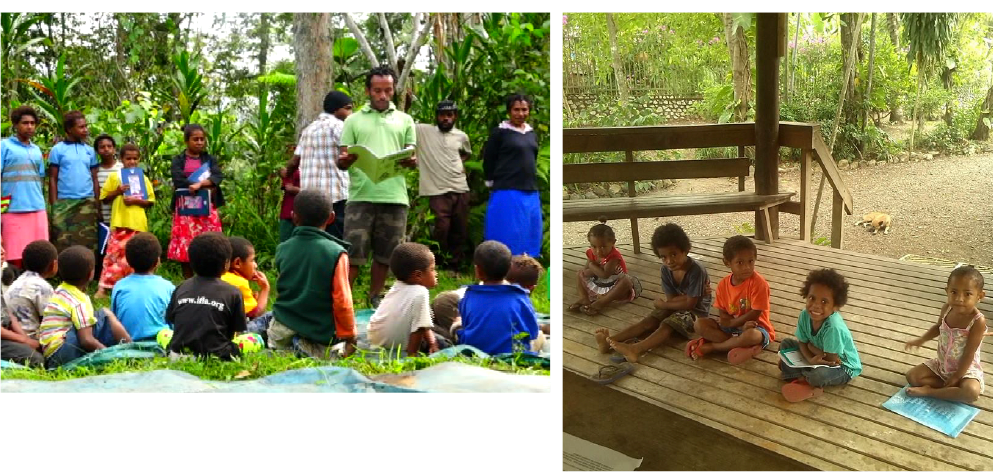
BAHÁ’I CHILDREN’S CLASSES
The Bahá'i children's classes aim to nuture the hearts and minds of children. The emphasis of these classes is on helping children to learn to reflect on and apply spiritual principles, such as love, unity, justice to their own lives and of those around them. Based on the teachings of Baha’u’llah the classes seek to inspire in children a love of God and His Messengers, and of humanity in all its diversity. The classes include short lessons and activities to build friendship through games, stories, art and music. Parents are encouraged to “…put forth every effort in this regard, for when the bough is green and tender it will grow in whatever way ye train it.”
This program currently has 3 Grades. 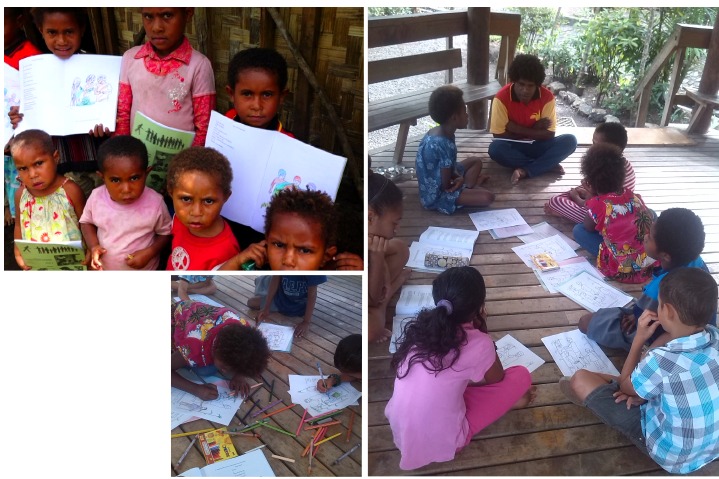
THE JUNIOR YOUTH SPIRITUAL EMPOWERMENT PROGRAMME (JYSEP)
The Junior Youth Spiritual Empowerment Programme (JYSEP) is an educational program that typically engages older youth to accompany their younger peers aged 11 to 15 to help them develop their powers of expression, capacities for moral reasoning and an ethic of service to others. The program combines study, mentorship and social action.
There are currently 9 titles with many more in development.
All of the titles are concerned with developing language skills and the power of expression. Some in the first category also address mathematical concepts and social issues, while others seek to prepare young people to approach the investigation of physical, social and spiritual reality in a scientific manner. The program helps them form a strong moral identity and empowers them to contribute to the well-being of their communities and the world at large.
By developing their spiritual qualities (virtues), their intellectual capabilities and their capacities for service to society, the participants come to see that they can become agents of positive change in the world.
The program adopts a participatory mode of learning where the facilitator and participants learn from each other.
Groups of participants engage in activities such as artistic expression, discussion, drama, cooperative games, study of literature, storytelling and acts of community service.
Once the student has completed the JYSEP, they can enroll in a Study Circle, which is basically a small group of around 10 people who are accompanied through the sequence of courses by a Tutor.
The books are intended to be used as the main sequence of courses in a systematic effort to enhance the capacity for service. The sequence is conceived in terms of three cycles, each one concerned with the spiritual and moral empowerment of individuals from a particular perspective. Books 1 to 7 are centered on the practice of the freedom the individual enjoys to undertake acts of service within the framework of the teachings of the Bahá’í Faith and the guidance provided by its institutions. Book 8 begins a cycle of courses dedicated to the individual and the community, which will be followed by the third cycle focusing on the individual and society.
The other aspect of the Bahá’i education process involves gaining an education which is concerned with the progress and development of the mind and body through the developing of one’s capacities so that they may support themselves in the future.
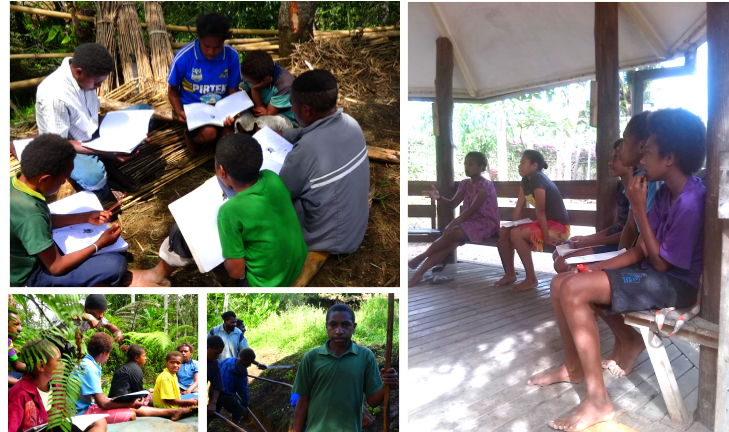
STUDY CIRCLES
Study circles are a decentralized and participatory approach to learning where groups of friends or neighbours engage in study of the Bahá’i writings and develop their capacity to serve their community. Study circles are facilitated by a trained tutor who also accompanies the participants in their learning.
THE RAYS OF LIGHT FOUNDATION
is a Bahá’i-inspired NGO that was established in 2008, to provide educational opportunities for those without access to schooling.
The Foundation has introduced the Elementary Teacher Training (ETT) course which seeks to empower communities by training members of the community to work as elementary teachers for their local village and surrounding area. The communities have built, own and run their own elementary schools with the training for teaching staff, curriculum and educational resources provided by the Rays of Light Foundation. These elementary schools are provided for all of the children in the community of the appropriate age.
So far (2015), training has been conducted with a total of 143 individuals who have been successful in returning to their rural area and, with the assistance of their communities, have established elementary schools which support the education of around 1,725 children.
The Foundation has also introduced the ‘Preparation for Social Action’ programme to help combat some of the difficulties in the region with educating a population which is sparsely inhabited, which contains many remote communities and one where education is often regarded as a privilege, not a priority.
Preparation for Social Action is a program that explores the spiritual and scientific perspectives, the investigation and application of knowledge for the betterment of the lives of a population. It also corresponds roughly to grades 9 and 10 of the formal curriculum. As the name of the program implies, it is education for development. The Preparation for Social Action (PSA) program seeks to empower youth by making math, science, language, community development, and technology applicable to their everyday lives. Its curriculum is both theoretical and action-oriented, integrating study with community-building activities.
In 2012 the first 18 participants completed the available courses and graduated from the program. Many of the graduates have strengthened various elements of the educational process such as coordination of education activities, or becoming an elementary teacher, or a tutor of the program itself. Experimentation with rice farming and reforestation has also begun. A series of seminars for a wider group where the PSA materials are studied intensively is building the capacity of those serving the cluster as the coherence of science and spiritual concepts is explored.
For more information please refer to www.raysoflight.org
